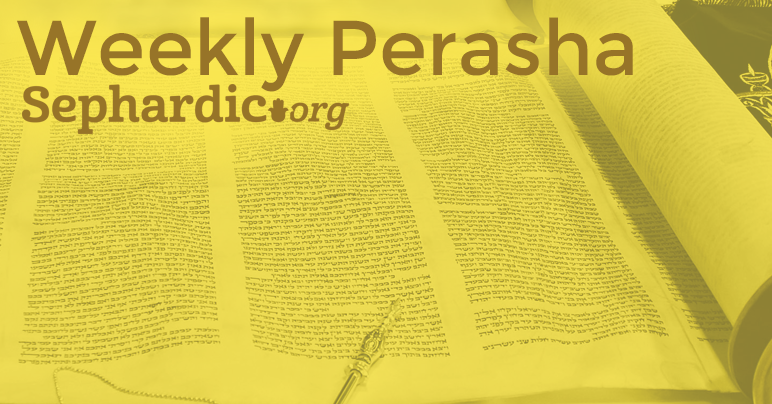
MIQESS - COMPETING FORCES OF REMEMBRANCE AND FORGETFULNESS
At the conclusion of Parashat Vayeshev the Torah relates that Yoseph not only interprets the dream of the Sar Hamashqim favorably - but proceeds to make a personal plea that the Egyptian officer remember Yoseph. "When things go well for you - remember I was with you - He continues "Please remember me when you are before Par'o. 1 Later on the Torah reveals that this chief butler did not remember Yoseph - and furthermore the verse concludes "And he forgot him - 2 Miqess opens up and relates that precisely two years pass and suddenly the chief butler proclaims that "now today I remember." He recalls his former sins -3 and proceeds to relate the accolades of Yoseph as a dream interpreter. R. HaAri explains that there are two opposing forces. The one of remembrance having its roots in holiness and that of forgetfulness (usually) associated with unholiness. 4 With this teaching - we need to approach these biblical narratives - giving clarity on the motives of Yoseph in his request of the butler and the reason for the two year delay in its fulfillment.
AROUSING THE FORCES
The force of Zekhira is associated with Israel and Holiness. A verse in Shemot attributes "Remembrance to Israel - before Hashem" 5 - Our sages also teach that man also has within his power the ability to arouse the unholy force of Shikheha - forgetfulness. The Talmud notes that anyone who gets angry (arouses the force of Shikheha and) forgets his learning. 6 Rish Laqish cited in another Masekhet adds that even a Hakham or Navi of the likes of Moshe Rabenu or Elisha the Prophet can be victims of forgetfulness. 7 Likewise they teach that one who is prideful also arouses this force and thereby forgets his learning. 8 The negative trait of ge’ut - arrogance is associated with Amaleq - as is hinted in their numerical value of 240 - equaling the word raam or pride. The biblical misva found towards the end Sefer Devarim can be elucidated to reflect that if and when we wipe out the pride associated with Amaleq from beneath the heavens - we will at the same time remove that force of forgetfulness or Shikheha. After the command to activate the force of Zakhor - to remember 9 - the biblical narrative concludes Lo Tishkah - you shall no longer be subject to forgetting - for that force will be subdued. 10
YOSEPH ASSESSES THE DREAM OF THE CHIEF BUTLER
The Zohar notes that when the chief butler related that he saw a vine in his dream - Yoseph was somewhat shaken. He was unclear if the dream was rooted in holiness. The Talmud (Berakhot 56) teaches that good dreams are associated with white grapes and detrimental ones with black ones. 11 The color of the grapes was not clarified but he did detail the fact that he saw in his dream three branches. Yoseph correctly determined that the dream was rooted in holiness as it associated the connection between the three Avot (branches) to the holy Shekhina. 12 The latter being referenced in the verse from Tehillim Your wife (Shekhina) is a fruitful vine. 13 The Talmud offers a series of seven interpretations of this dream in terms of its historical significance as a harbinger of good tidings for Israel. All of them in terms of the dream functioning as a precursor to our ultimate redemption. 14 It was as a result of this Yoseph then mistakenly assumed that the chief butler must also be endowed with the holy force of Zekhira - The Zohar relates that though the dream was holy - it is apparent that the dreamer himself was still part of the triad of impurity. 15 So when we are taught in the Midrash that Yoseph had two years added to his imprisonment for having relied on the chief butler to accelerate his release - 16 We understand this error to be his incorrect assumption that the butler had been sufficiently spiritually prepared to have Zekhira - to assist in the release of Yoseph. I saw in the commentary באתי לארמוני that the three officers of Par’o were entrenched in impurity. An acrostic of their titles indicates this - they are Tabahim, Mashqim, Aufim. Tet, Mem, Alef which spell TaMAe - Impure! 17
THE TWO YEAR DELAY
We have noted that the Sages have asserted that Yoseph miscalculated putting the trust of the force of Zekhira in the chief butler. He would have been better off if he interpreted the dream as it was meant to be in holiness - but leaving the dreamer in his place. Namely not seeking the Sar Hamashqim to be endowed with the force to remember - but leaving the method of his release up to the Creator without any additional reliance on the butler. This mishap caused the force of Shikheha and darkness to temporarily descend upon Yoseph. The parasha opens up with Vayehi Mikess - The Zohar cites R. Shimon Bar Yohai that qess refers to a place without Zekhira - rather one associated with the side of evil or Shekhiha - It would take two years for this evil force to subside. As the Zohar explains this phenomenon in mystical terms "When the forces of negativity which causes Shekhiha subsided - the Shekhina ascended to a position of unity or Zekhira - The holy channel of Yesod being united with the Shekhina. 18 The verse says Shenatayim Yamim - It would take two years to reestablish their unity. 19 Sefer Bati Le’armoni - writes that during the two years of disunity the Satan had remained in control and subdued the force of remembrance. We know that the Satan rules 364 of the 365 days of the Solar year - the only exception being Yom Kippour - this is hinted to in the numerical value of HaSatan or 364. He ruled for two years or 728 days which equals to the value of Tishkah - you shall forget. 20
THE REDEMPTION AND FORCE OF REMEMBRANCE
The Talmud reveals that a dream containing a river is a harbinger of Shalom or peace. 21 This midda is associated with that of Yesod and Yoseph. 22 The dream of Par’o was therefore a harbinger of the ascent of Yoseph from prison. It indicated a unity above and therefore the force of Zekhira was now in control. 23 Hence we see that the Sar Hatabahim was automatically endowed with the power of Zekhira as the verse states - I recall today my offense - For two years while under the force of the Satan I had not ability of Zekhira - now Today the force has returned and therefore I will tell you Par’o of what I now can recall. The Bati Le’armoni notes that this force is associated with Yoseph as the numerical value of זכור is 233 and is synonymous with that of Yud Vav Samekh Phe - the expansion of the four letters of the name of Yoseph which also equals 233. 24
EARLY ORIGINS OF THE NEGATIVE FORCE
We learned in a previous parasha, that the celestial angel of Esav was able to isolate and expose this negative force in his struggle against Yaakov. The latter admitted as such when the Torah tells us that as a result of the battle, the children of Israel do not eat the Gid Hanashe- or the sinew associated with forgetfulness of a kosher animal. 25 The ruling is that we are not to consume the hindquarter of an animal unless this sciatic nerve is carefully removed from the carcass. I would imagine that ingesting this sinew is synonymous with spiritually consuming the negative force of Shikheha. The celestial channel that needs to be purified to keep this negative force at bay is called Hod. More than a thousand years after this incident we are taught that the Yevanim - The Greeks of the second temple era sought control of this eighth channel and were determined to cause Israel to forget the Torah. 26 Through the valiant effort of the Hashmonaim, Israel was successful in reinstating this spiritual channel back under its own auspices. Each year on Hanukkah when lighting we are to meditate on subduing this negative force by activating the divine force called Regel. 27 It is proper to use Shemen (Zayit) to accomplish this. We know that Shemen - Oil is associated with the positive force of remembrance. 28 Coincidentally it has the same root letters shin, mem, nun as Menashe the first born son of Yoseph. The Torah writes that Yoseph named his first born Menashe because God has allowed me to forget all my troubles and even my fathers house. 29 It appears to me that the intent of Yoseph was to alter the power of forgetting and transform it into a vehicle in the service of Hashem. According to R. Yisrael Ben Shabtai Mi’qushnits - It was Menashe the interpreter who reflected this Avoda and hence was the connection between Yoseph and his brothers. This brotherly and heavenly unity can be accomplished thru one striving to forget all of one’s passion for materialistic tendencies in this world. Hence it can be suggested that we meditate upon these ideas when we recite the Torah reading of the eighth day of Hanukah with the korban of Gamliel Ben Pedasur of the tribe of Menashe. 30
BREAKING OF THE LUHOT AND RESURGENCE OF THE FORCE OF SHIKHEHA
We have a tradition that the negative force related to forgetfulness was anticipated to be eradicated with the giving of the first set of Luhot. The Torah in Sefer Devarim tells us that these were unique in that they were written with the finger of God while the second set were said merely to be written as the first. 31 In the original biblical narrative from Sefer Shemot it is written that these luhot were written on both sides with the writing visible from either side. Furthermore the verses contend that these Luhot were made by God and written with God’s script engraved on the Tablets. 32 The Talmud teaches that the letters Mem and Samekh miraculous stood 33 - (as if written in ashurite script) as their insides would not be connected to any part of the Stone. The Talmud teaches that this force of Shikheha once again became entrenched as a new spiritual reality as a result of the breaking of the original luhot. 34 R. Yoseph Hayyim explains on his commentaries to these Talmudic passages that these two letters which are numerically equal to 100 would no longer stand but rather fell into the clutches of impurity. 35 We can now appreciate a mystical interpretation of the Talmudic teaching that one cannot compare the Torah learning or its review of 100 times to that of 101 repetitions. 36 While 100 is now subject to the impurities of forgetfulness the 101st review or repetition elevates the learning to within the holy force of remembrance. The commentators offer various reasons as to the relationship of 101 with the power to recall. One opine of note is that of R. Moshe Zacuto who advances that it is synonymous with the numerical value of the angel Mikha’el. 37 May Hashem help us to arouse this angel or Sar HaTorah to assist us in our divine struggle to overcome the Sar HaShikheha. 38
Shabbat Shalom
Victor Bibi








